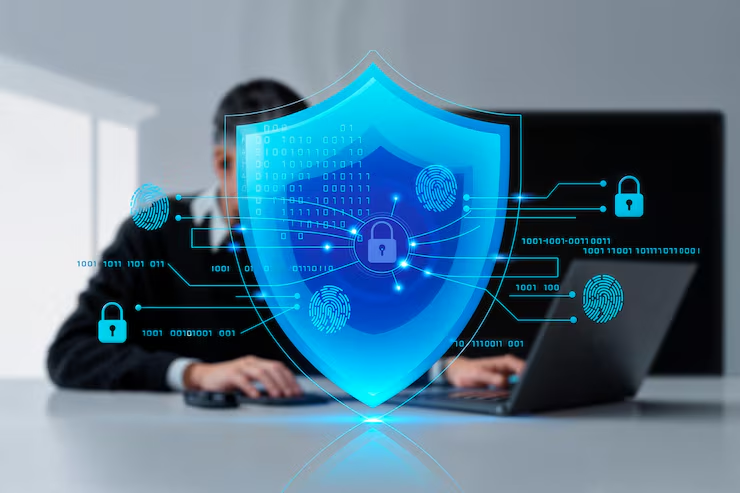Top 10 Cybersecurity Services Every Company Should Use

In today’s digital world, cyber threats are everywhere. Hackers target businesses of all sizes, from small startups to large corporations. That’s why every company needs strong protection. The right Cybersecurity Services can make the difference between staying safe and becoming the next victim of a cyber attack.
Many business owners think cybersecurity is too complex or expensive. The truth is, basic protection doesn’t have to break the bank. With the right strategy and tools, you can protect your company’s valuable data and keep your operations running smoothly.
1. Antivirus and Anti-Malware Protection
Every computer in your office needs antivirus software. This is your first line of defense against viruses, trojans, and other harmful programs. Modern antivirus solutions do more than just scan files. They watch for suspicious behavior and block threats before they can cause damage.
Choose antivirus software that updates automatically. New threats appear every day, so your protection needs to stay current. Look for solutions that work quietly in the background without slowing down your computers.
2. Firewall Services
A firewall acts like a security guard for your network. It checks all incoming and outgoing internet traffic and blocks anything that looks suspicious. Think of it as a barrier between your internal network and the dangerous outside world.
Most routers come with basic firewall features, but businesses need more advanced protection. Professional firewall services can detect complex attacks and provide detailed reports about network activity.
3. Email Security Solutions
Email is one of the most common ways hackers try to break into businesses. Phishing emails trick employees into clicking dangerous links or downloading infected files. Email security services scan all incoming messages and block threats before they reach your inbox.
These services also help with spam filtering. Less junk email means your team can focus on important messages instead of sorting through unwanted advertisements and scam attempts.
4. Data Backup and Recovery
When disaster strikes, having good backups can save your business. Ransomware attacks, hardware failures, and natural disasters can all destroy important files. Regular backups ensure you can get back to work quickly after any emergency.
The best backup solutions store copies of your data in multiple locations. Cloud backups are especially useful because you can access your files from anywhere. Many companies partner with an IT Support Company to handle their backup strategy and ensure everything works correctly.
5. Network Monitoring Services
You can’t protect what you can’t see. Network monitoring tools watch your internet traffic 24/7 and alert you to unusual activity. They can spot signs of a breach before major damage occurs.
These services track everything from login attempts to file transfers. If someone tries to access systems they shouldn’t, or if large amounts of data start moving to unknown locations, you’ll know right away.
6. Employee Security Training
Your employees are both your greatest asset and your biggest security risk. Most successful cyber attacks start with human error. Someone clicks a bad link, downloads the wrong file, or shares passwords with the wrong person.
Regular security training teaches your team how to spot threats and respond appropriately. Cover topics like password safety, email security, and social engineering tactics. Make the training interesting and relevant to keep everyone engaged.
7. Multi-Factor Authentication (MFA)
Passwords alone aren’t enough anymore. Multi-factor authentication adds extra security layers by requiring additional proof of identity. This might be a code sent to your phone, a fingerprint scan, or a hardware token.
Even if hackers steal passwords, they still can’t access your systems without the second factor. This simple step stops most unauthorized access attempts and is one of the most effective security measures you can implement.
8. Vulnerability Assessment and Penetration Testing
Regular security checkups help find weaknesses before the bad guys do. Vulnerability assessments scan your systems for known security holes. Penetration testing goes further by actually trying to exploit these weaknesses in a controlled way.
These services show you exactly where your defenses need improvement. Many businesses are surprised to learn about security gaps they didn’t know existed. Fixing these issues before they become problems saves money and prevents headaches.
9. Endpoint Detection and Response (EDR)
Traditional antivirus software is reactive – it responds to threats it already knows about. EDR solutions are proactive. They watch how programs behave and can spot new types of attacks that haven’t been seen before.
Managed IT Services often include EDR as part of their security packages. These advanced tools can automatically respond to threats, isolating infected computers and stopping attacks from spreading to other devices.
10. Security Information and Event Management (SIEM)
SIEM systems collect security data from all your devices and look for patterns that might indicate an attack. They’re like having a security analyst working around the clock, watching for signs of trouble.
These systems can connect dots that humans might miss. For example, they might notice that someone logged in from an unusual location at an odd time, then accessed files they don’t normally use. This could indicate a compromised account.
Making Cybersecurity Work for Your Business
Implementing all these services might seem overwhelming, but you don’t have to do everything at once. Start with the basics like antivirus, firewall, and employee training. Then gradually add more advanced protections as your business grows.
Many companies find it helpful to work with cybersecurity professionals who can assess their specific needs and recommend the right combination of services. The investment in good security pays for itself by preventing costly breaches and keeping your business running smoothly.
Remember, cybersecurity isn’t a one-time purchase – it’s an ongoing process. Threats evolve constantly, so your defenses need to evolve too. Regular updates, training, and assessments ensure your protection stays effective against the latest risks.
The cost of good cybersecurity is always less than the cost of recovering from a successful attack. Protect your business, your customers, and your reputation by implementing these essential security services today.

Source: Top 10 Cybersecurity Services Every Company Should Use




